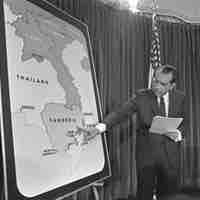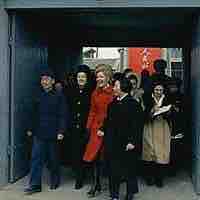Section 1
The Nixon Administration
By Boundless

Republican Richard Nixon was elected president in 1968 and easily won reelection in 1972; however he left office amidst a scandal in 1974.

The Nixon Doctrine aimed to gradually strengthen South Vietnamese forces so they could defend against North Vietnam without U.S. support.

Under the Nixon Doctrine, the U.S. continued to assist its allies through economic aid and military supplies while encouraging allies' self defense.

Richard Nixon's 1972 visit to the People's Republic of China was an important step in easing relations between both nations.
Nixon's domestic policies were shaped by the ideas of New Federalism, which proposes the decentralization of political power.

The Nixon administration, prioritizing a return to "law and order," did not advance civil rights to the extent of the previous administrations.
In 1972, Nixon beat George McGovern in a landslide reelection victory due to negative views on McGovern's campaign.

The Watergate scandal encompasses a series of illegal activities undertaken by members of the Nixon administration in 1972, leading to Nixon's resignation.